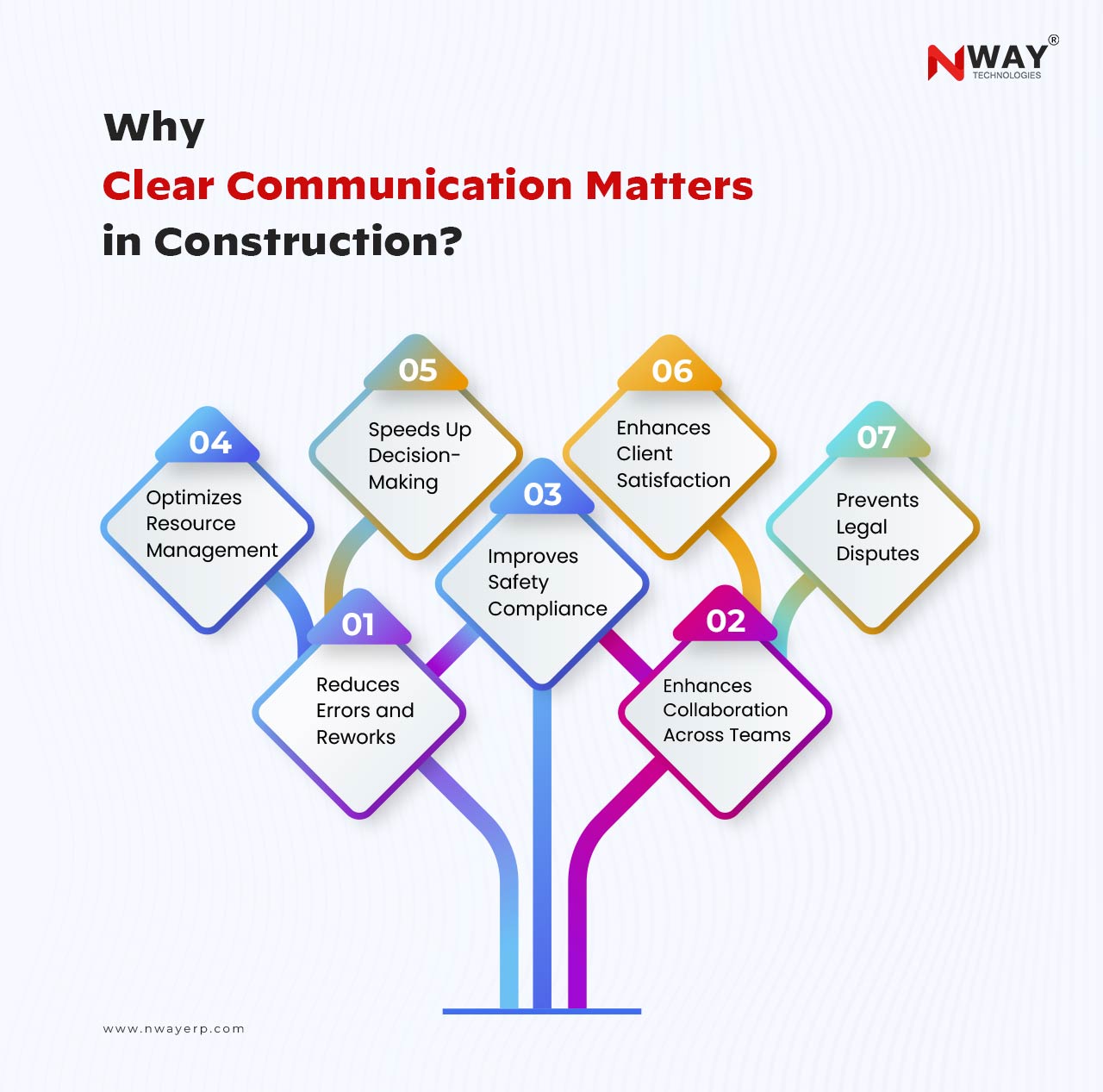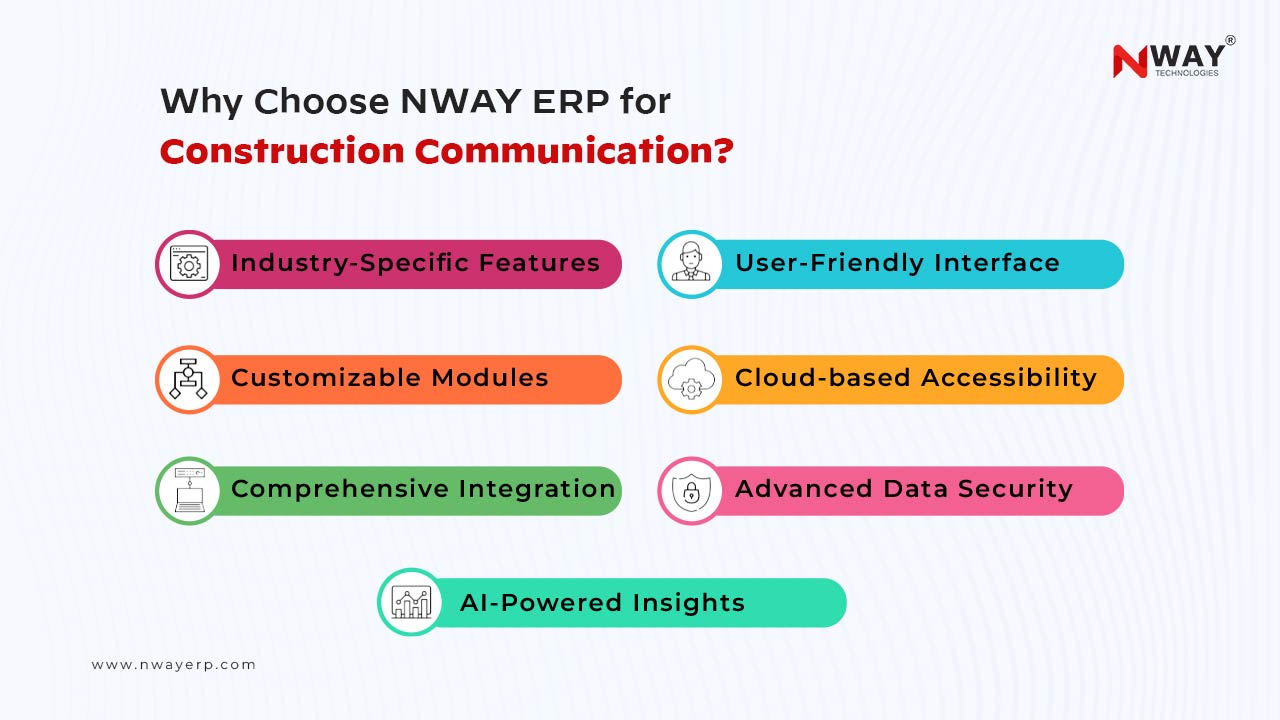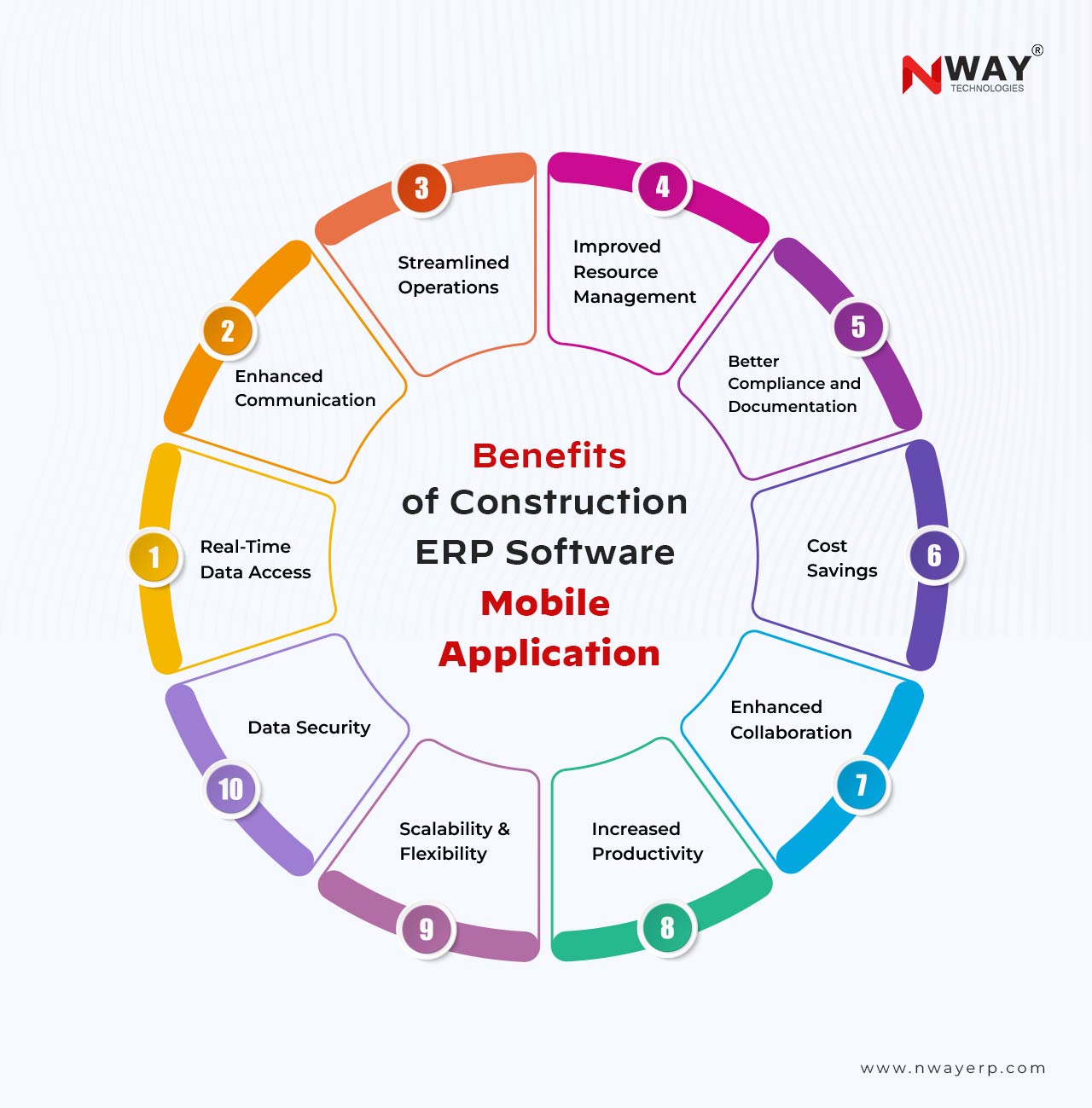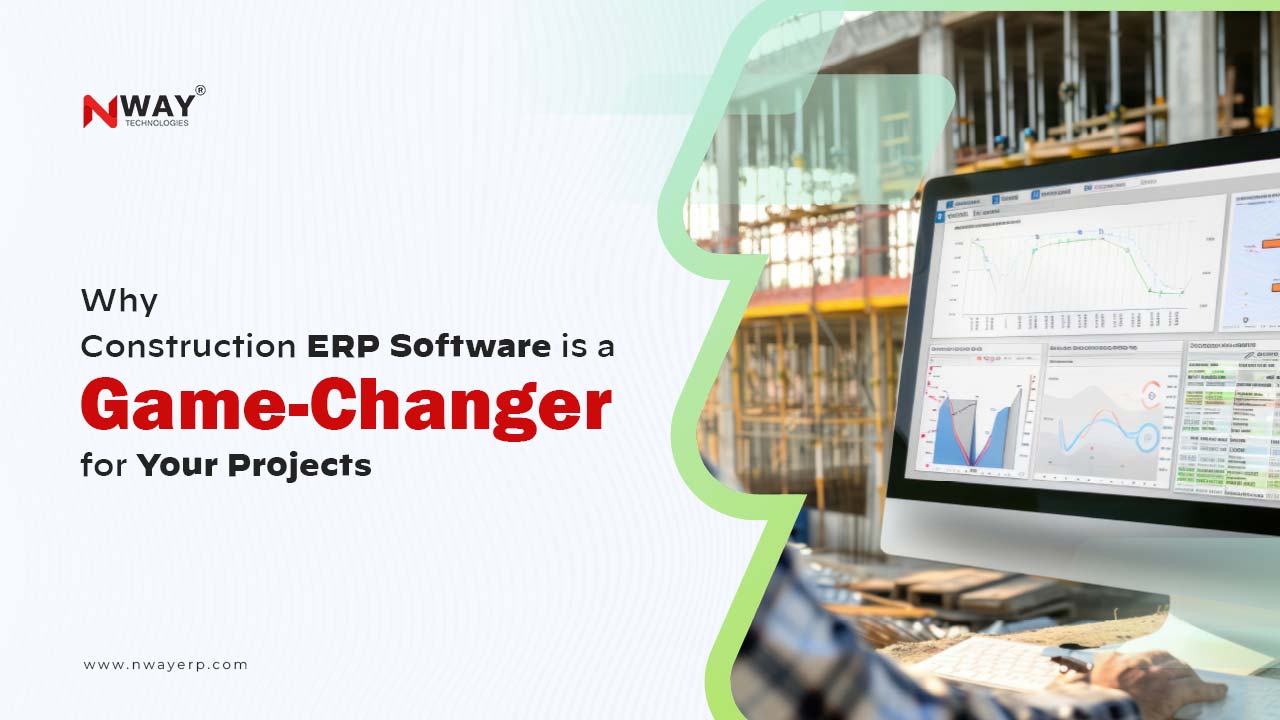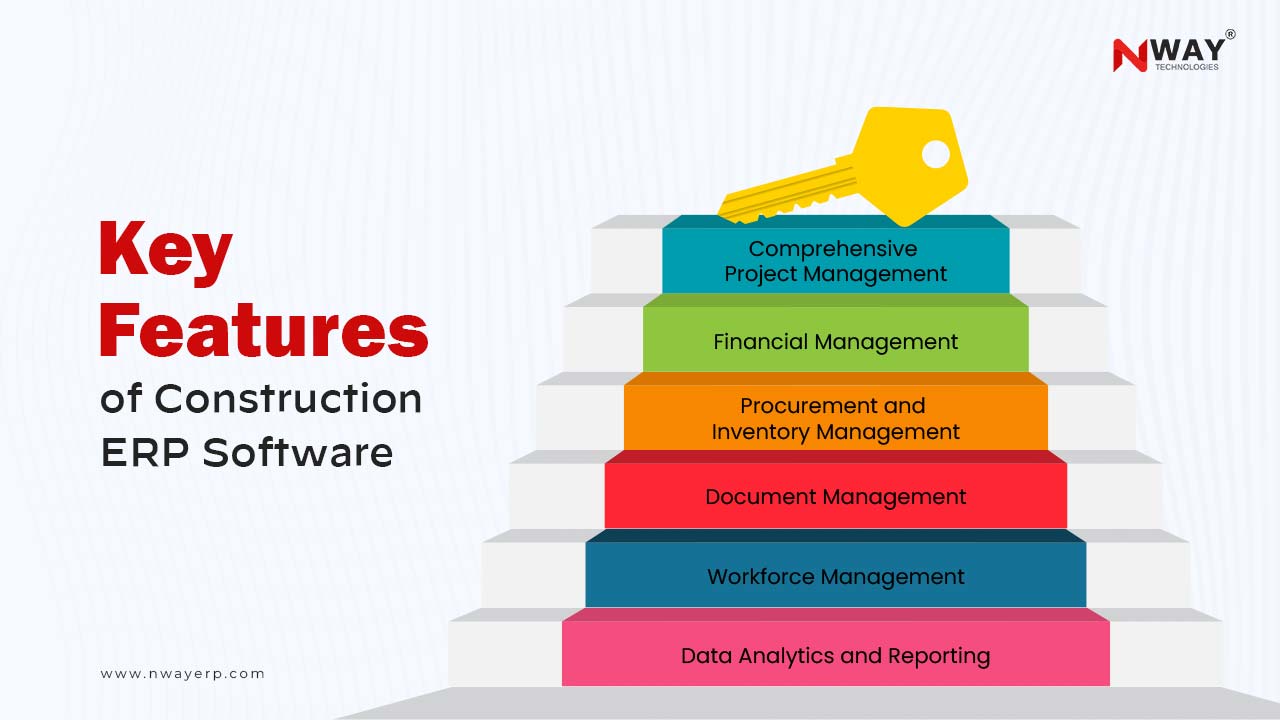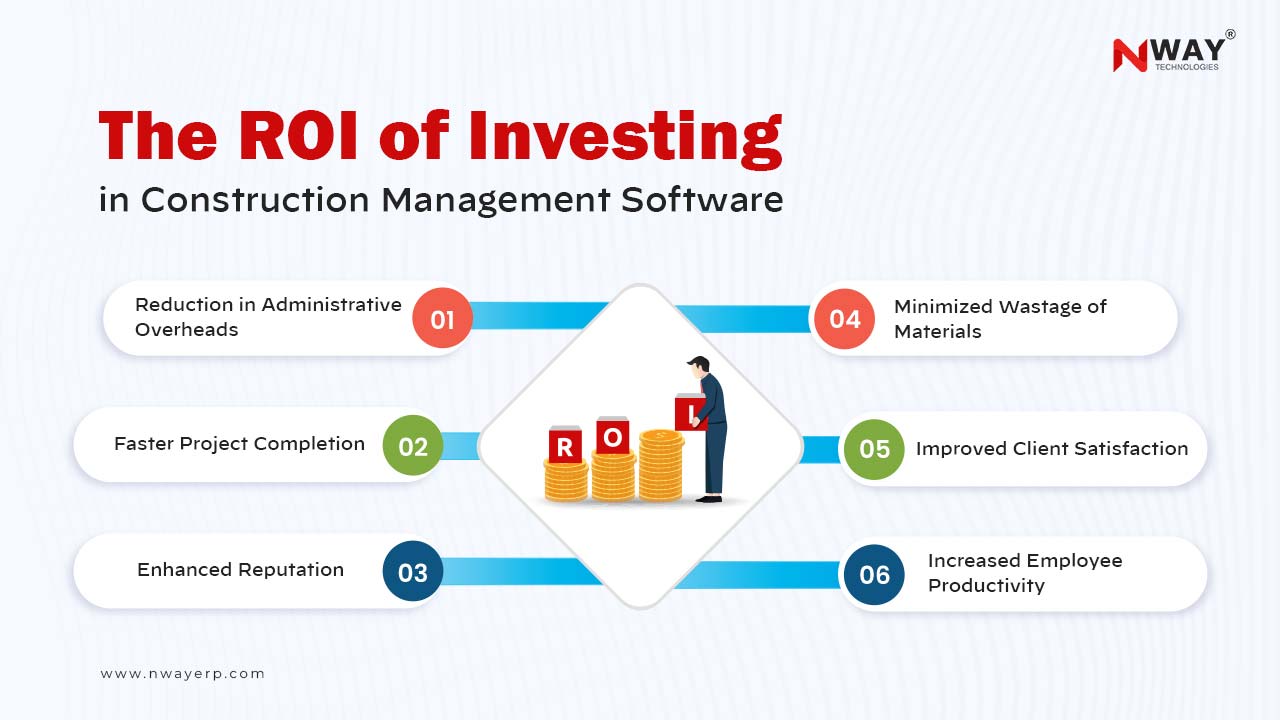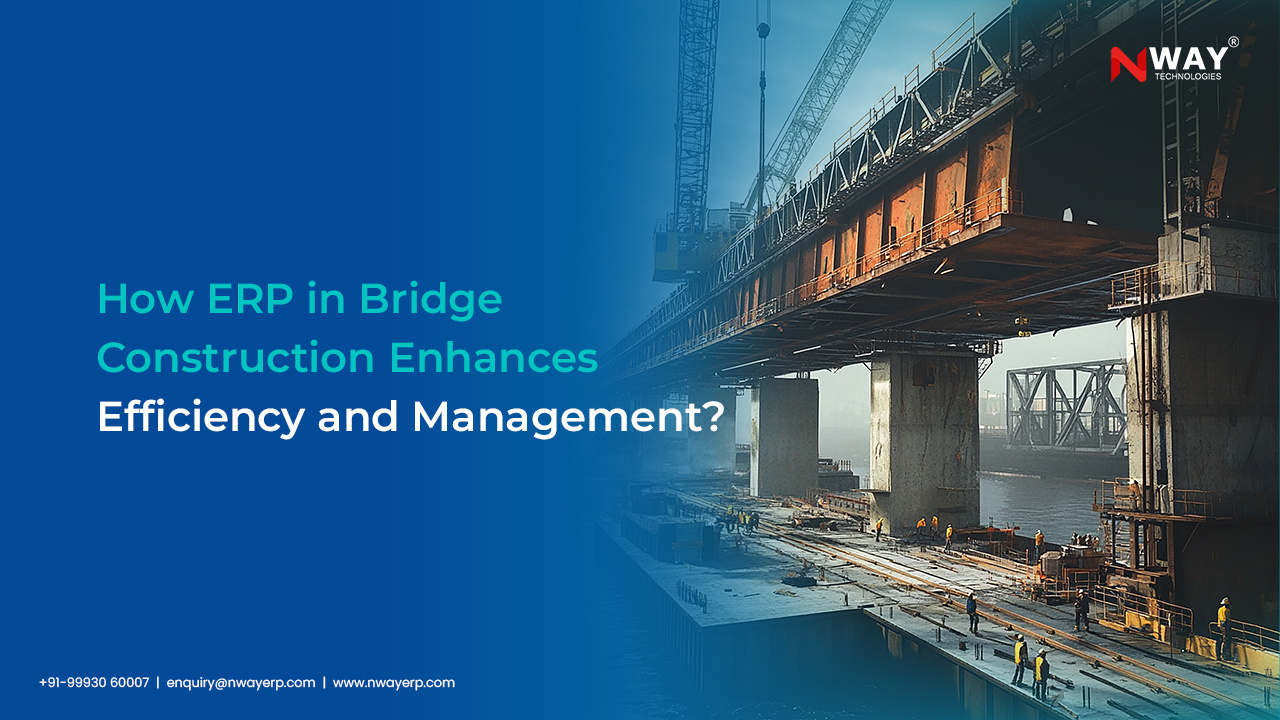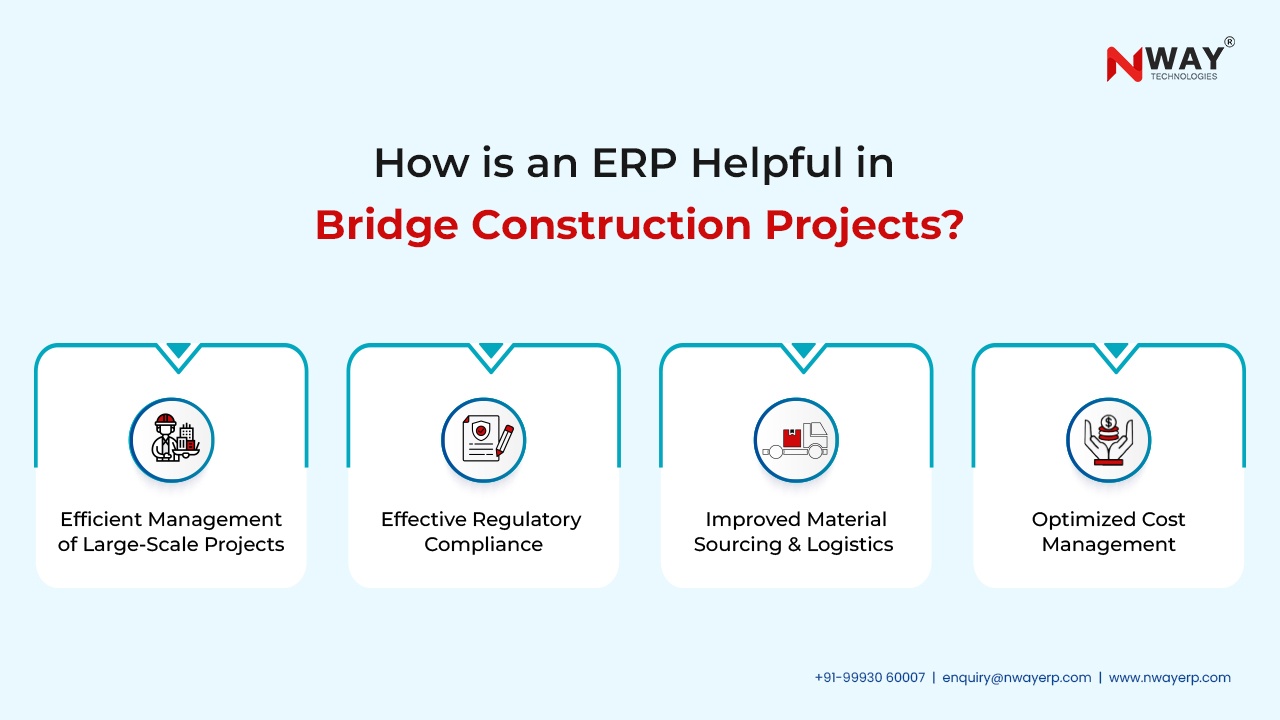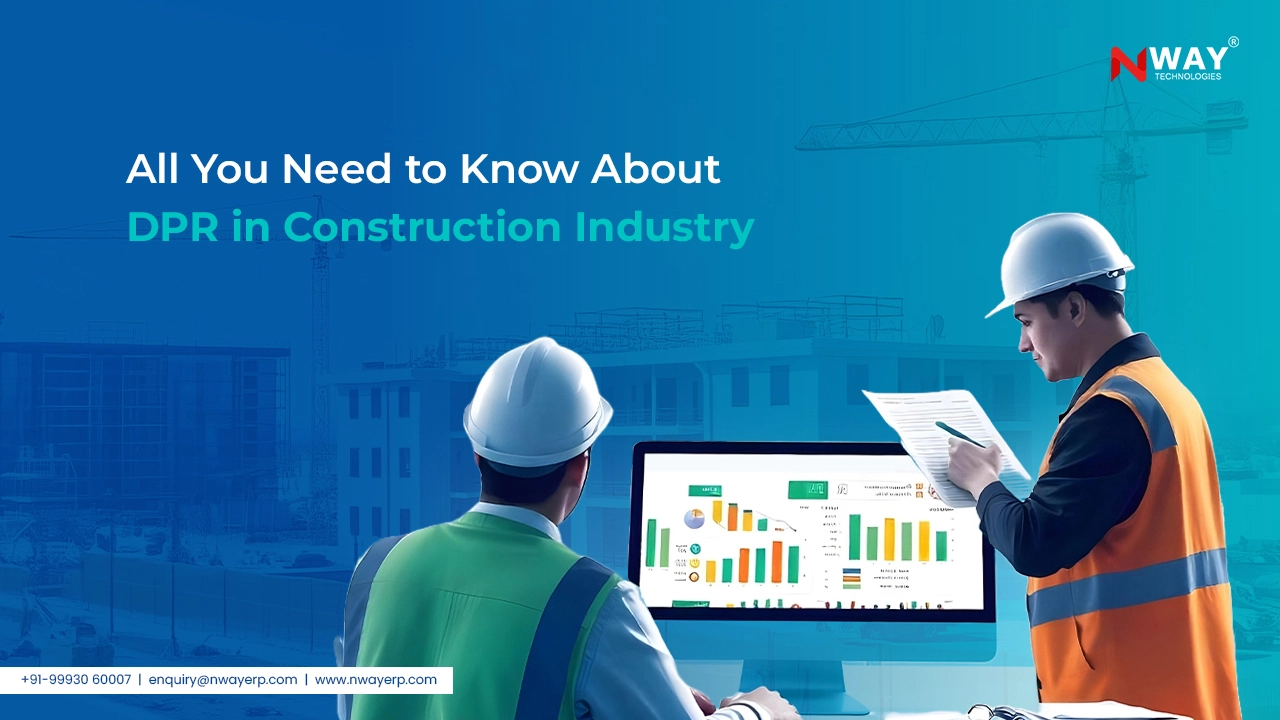Clear communication is crucial in the construction industry, where projects involve multiple stakeholders. Whether between project managers, architects, engineers, contractors, or suppliers, effective communication ensures efficiency, reduces costly errors and enhances
overall project success. Poor communication in construction, on the other hand, can lead to delays, budget overruns, safety issues, and misappropriation of goals.
In this blog, we will discuss the impact of poor communication in construction, the benefits of clear communication, the role of ERP systems in streamlining communication, why NWAY stands out, and how improving communication can drive efficiency in construction projects.
Table of Contents:
- Reasons of Poor Communication
- Why Clear Communication Matters in Construction?
- Role of Construction ERP in Improving Communication
- Why Choose NWAY ERP for Construction Communication?
- Conclusion
Key Takeaways
Poor communication in construction leads to delays, cost overruns, and safety risks.
Clear communication helps in driving efficiency, collaboration, and decision-making.
Construction ERP software streamlines communication by centralizing data and optimizing reporting.
NWAY ERP is the ideal solution for construction companies enhancing communication and optimizing operational efficiency.
Investing in better communication strategies today ensures long-term success in construction projects.
Reasons for Poor Communication in Construction
Communication is often one of the most important aspects in the construction industry for smooth functioning, but various construction projects face significant challenges due to ineffective tools and the construction industry:
1. Lack of a Centralized Information System
Many construction companies still rely on fragmented systems, manual documentation, and email chains, which can lead to miscommunication and loss of important project details.
2. Complexity of Construction Projects
Large-scale construction projects involve multiple teams, including architects, engineers, contractors, and suppliers. Lack of effective communication makes it difficult to align project goals and objectives.
3. Misinterpretation of Data and Instructions
Construction plans, drawings, and specifications can be complex. Without effective communication, they can create difficulty and misunderstandings, leading to errors, rework, and project delays.
4. Delayed Reporting and Updates
Without a system for real-time communication, delays in reporting progress, safety issues, or material requirements can slow down project execution and increase costs.
5. Language Barriers and Cultural Differences
Construction projects often involve a diverse workforce with different languages and cultural backgrounds. A lack of a clear communication strategy can lead to misunderstandings.
6. Resistance to Technology Adoption
Many construction companies resist adopting digital tools, relying on traditional methods instead. This resistance creates inefficiencies and limits the ability to share and create project information effectively.
7. Lack of Standardization
Without standardization and communication protocols, different teams may use varying methods to relay information, leading to inconsistent communication.
Why Clear Communication Matters in Construction?
Clear communication is the key to a successful construction business. Here are a few reasons why effective communication is necessary:
1. Reduces Errors and Reworks
When instructions and project details are communicated accurately, the likelihood of errors is significantly reduced. This also minimizes rework and saves both time and money.
2. Enhances Collaboration Across Teams
Construction projects involve collaboration between multiple teams. It also helps ensure that everyone stays on the same page, improving coordination and efficiency.
3. Improves Safety Compliance
Construction sites have strict safety protocols. Clear communication about safety measures helps prevent accidents and ensures compliance with regulatory standards.
4. Optimizes Resource Management
It helps accurate and timely communication, construction managers can better allocate materials, labor, and equipment, reducing waste and enhancing safety and productivity.
5. Speeds Up Decision-Making
Construction projects often require quick decisions to address unexpected challenges. With effective communication, project managers can access real-time data to make informed decisions quickly.
6. Enhances Client Satisfaction
When stakeholders are well-informed about project progress, potential delays, and changes, it builds trust and leads to higher client satisfaction.
7. Prevents Legal Disputes
Clear documentation and well-communicated contracts reduce the chances of disputes arising from misunderstandings, scope changes, or contractual disagreements.
Role of Construction ERP in Improving Communication
An ERP system is vital in improving clear communication in construction. It integrates all
project-related information into a single platform. It also streamlines information flow and improves collaboration.
A few of the reasons why ERP improves communication:
Centralized Data Management
An ERP system consolidates all project information, ensuring that everyone has access to accurate and up-to-date data.
Real-Time Project Updates
With ERP, teams receive real-time updates on project progress, material requirements, labor allocation, and financial status, reducing delays and misunderstandings.
Enhanced Document Management
ERP software provides a secure and organized way to store and share information, and project documents, such as blueprints, contracts, compliance reports, and documents. It helps maintain transparency, accountability, and accessibility.
Optimized Reporting and Notifications
Effective ERP can help generate optimized reports and notifications, keeping stakeholders informed about project progress, deadlines, and potential risks.
Seamless Communication Across Departments
By integrating different construction processes, an ERP system facilitates smooth communication between procurement, finance, project management, and field teams.
Mobile Accessibility
With mobile-friendly interfaces, site workers and managers can access project data and updates from anywhere in the world, ensuring real-time communication and responsiveness.
Improved Collaboration with Subcontractors and Project Managers
Construction ERP software helps subcontractors and project managers stay connected, have clear communication in construction, and reduce miscommunication and project disruptions.
Why Choose NWAY ERP for Construction Communication?
While many ERP solutions exist, NWAY ERP stands out as the best choice for construction businesses. Being India’s leading construction ERP software, it provides services like:
Industry-Specific Features
NWAY ERP is designed specifically for the construction industry, it helps address the unique challenges of project management, procurement, and workforce management.
User-Friendly Interface
NWAY ERP offers an intuitive interface that helps companies ensure ease of use with effective communication and collaboration.
Customizable Modules
Construction ERP software provides modules tailored to fit the specific needs of construction companies, ensuring flexibility and efficiency.
Cloud-based Accessibility
With cloud-based deployment, NWAY ERP allows teams to access project data from anywhere. It also helps ensure seamless communication in remote locations.
Comprehensive Integration
NWAY ERP integrates with accounting, inventory, HR, and procurement systems, ensuring coordination between multiple departments.
Advanced Data Security
With robust security protocols, NWAY ERP maintains project data, keeping it protected from unauthorized access.
AI-Powered Insights
NWAY ERP provides AI-driven analytics to forecast potential delays, optimize resources, and provide actionable insights for better decision-making.
Read more in our latest blog on Impact of ERP Software on the Construction Industry.
Conclusion
In the construction industry, projects are complex and require seamless communication and collaboration. Poor communication leads to delays, cost overruns, and safety risks. It is important to ensure smooth coordination, with better resource management, and timely decision-making.
By adopting NWAY ERP, businesses can enhance communication, reduce inefficiencies, and achieve greater efficiency. Prioritizing clear communication in construction today will lead to improved productivity, project outcomes, reduced costs, and higher profitability in the long run. Contact us now to learn how NWAY ERP can help improve communication and optimize processes.

